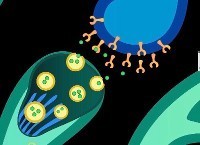Alzheimer's disease acknowledged as progressive multifarious neurodegenerative disorder, is the leading cause of dementia in late adult life. Pathologically it is characterized by intracellular neurofibrillary tangles and extracellular amyloidal protein deposits contributing to senile plaques. Over the last two decades, advances in the field of pathogenesis have inspired the researchers for the investigation of novel pharmacological therapeutics centered more towards the pathophysiological events of the disease. Currently available treatments i.e. acetylcholinesterase inhibitors (rivastigmine, galantamine, donepezil) and N-methyl D-aspartate receptor antagonist (memantine) contribute minimal impact on the disease and target late aspects of the disease. These drugs decelerate the progression of the disease, provide symptomatic relief but fail to achieve a definite cure. While the neuropathological features of Alzheimer's disease are recognized but the intricacies of the mechanism have not been clearly defined. This lack of understanding regarding the pathogenic process may be the likely reason for the non-availability of effective treatment which can prevent onset and progression of the disease. Owing to the important progress in the field of pathophysiology in the last couple of years, new therapeutic targets are available that should render the underlying disease process to be tackled directly. In this review, authors will discusses the different aspects of pathophysiological mechanisms behind Alzheimer's disease and its management through conventional drug therapy, including modern investigational therapeutic strategies, recently completed and ongoing.
Via Krishan Maggon



 Your new post is loading...
Your new post is loading...










Volume 67, Issue 2, April 2015, Pages 195–203
Review article A review on Alzheimer's disease pathophysiology and its management: an updateAnil Kumar, , , Arti Singh, Ekavali doi:10.1016/j.pharep.2014.09.004